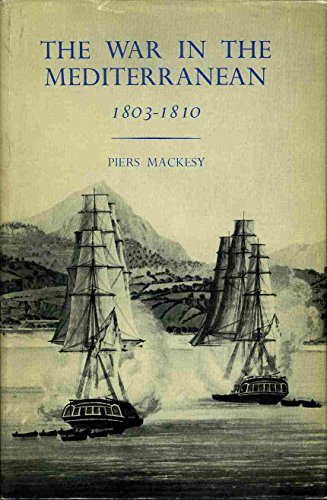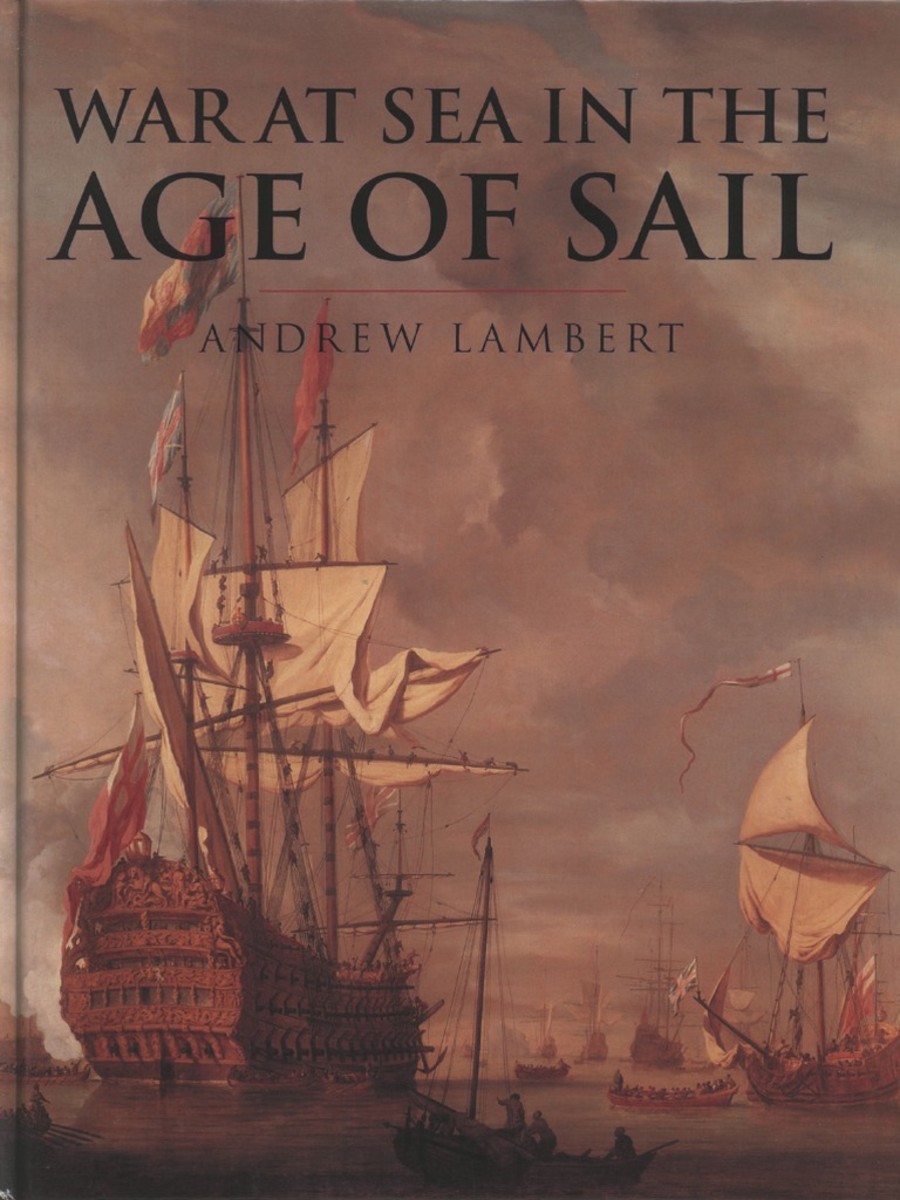The War in the Mediterranean 1803-1810 Review
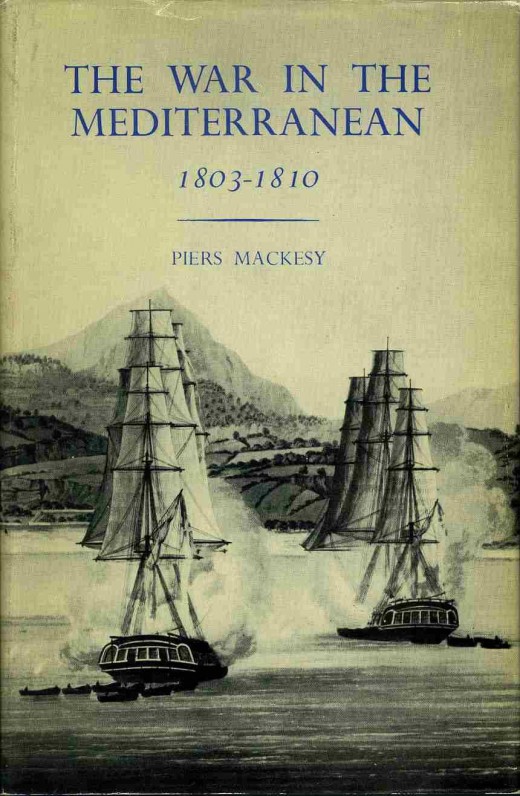
The Napoleonic war in the Mediterranean is a little known aspect of the French Revolutionary and Napoleonic Wars. During this era, in the popular consciousness only the French invasion of Egypt appears as an object of interest : the rest of this great sea passes into obscurity. However, the Mediterranean throughout this period was a critical battleground, with important strategic and commercial stakes in play. These elements are examined in The War in the Mediterranean 1803-1810 by Piers Mackesy, written in 1957. It deals principally with the British strategy and operations in the Mediterranean, although it is broad enough to include substantially Russian policy present, negotiations and conflict with the Ottoman Empire, relations with Spain and Austria, and the continual travails of sea power in the region. It is organized with an initial opening which deals with various impulses for British strategy in the Mediterranean, such as economic elements, followed by chronological elements : the initial conflict in the Mediterranean and Nelson's hunt for Villeneuve's fleet which led to Trafalgar, the Anglo-Russian cooperation and discord in Greece, the British landing in Italy, victory at Maida, and retreat, the effects of Austerlitz and the defense of Sicily, war and peace with the Ottoman Empire, Anglo-French naval conflict after Tilsit, the revolt in Spain, and finally British operations to attempt to assist Austria in the War of the Fifth Coalition.
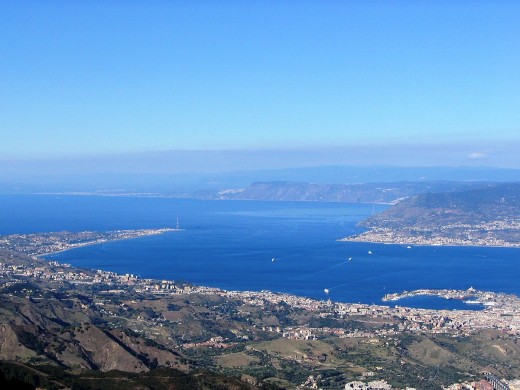
The integration of economic aspects in the book starts out seemingly well done, but it is incomplete. While there is much mention of the amount of economic trade which passed through the Mediterranean, and the nature of this trade and its strategic import, the book does not link this as part of a wider British economy. How important was 5,000,000 pounds of imports from India, or 150,000 from the Mediterranean? There is a lack of a real analysis of the effects of military warfare on the wider economies, social, and political development of the nations involved : coming from a book before the "Military Revolution" school of thought which has analyzed the effect of military technologies on state development (first proposed in 1955, by Michael Roberts, the book wouldn't have had time to incorporate such developments with its 1957 publication date) had been developed, it doesn't have breadth beyond purely military and sometimes diplomatic actions. In addition, while military and economic concerns both go together well, what about ideological elements? Indeed, the book itself seems to be an indictment of the British ideology of Napoleon as an aggressor and themselves as victims : near the beginning of the book it defends the continued occupation of Malta and hence the breaking of the Treaty of Amiens based upon supposed French bellicosity. In addition, it does next to nothing to integrate the Barbary states into the volume : what was their relationship with France and Britain? Finally for the elements it leaves out, it only deals with 1803-1810, meaning that the decisive final climax to the war is left uncovered, as is too the events which led up to 1800. There are often references to complications occasioned by basing arrangements in this era, but they are left uncovered by the lack of chronological coverage.
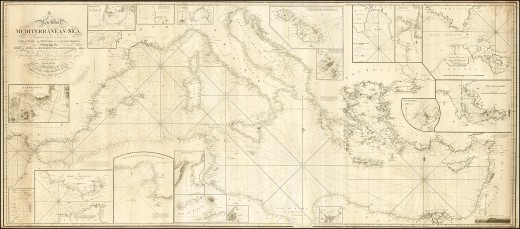
The book is well imbued with a certitude that British actions were righteous, just, and moral, something that the author evidently shares with the British governments of the era. This lack of an ideological aspect reduces the value of the work, although given its publication era, it is to be expected. The cultural turn in diplomatic history had not yet arrived, so by the standards of the era, a work such as this book would be quite standard. Its age does clearly show in the way that it writes, referring to the idleness of the Turks and the "fanatical masses" there present, but some exceptions must be made for age. Being written by a British author, the book can be quite naturally biased at times, but worse is simplicity : the Queen of the Two-Sicilies for example, is said to dislike Britain due to "jealousy" "distrust" and longing to return to Naples : a woefully simplistic analysis of what is presented as a critical part of the British-Sicilian relationship which in of itself was vital for the entire Mediterranean. Indeed, this is not an uncommon occurrence in regards to its treatment of non-British actors : the Russians were "jealous" of the British presence in Siciliy, but the book makes little attempt to explain why : their opposition to British control at Malta was earlier explained based off of Russian support for the Knights of Malta, but nothing is provided for Sicily. The failure of foreigners is not uncommonly used at times when things go awry, be it the poor usage of foreign troops in Egypt or continual complains about the Russian Mediterranean squadrons. Some of this may hold value, but it is a common trope for British historians to underplay their faults and to exaggerate those of their allies to excuse defeats : consider in the same era the British castigation of the Dutch army at Waterloo, where British troop failings have been routinely excused, while Dutch forces depicted as surrendering cowards. Greater usage of quotes might have resolved this, as compared to previous books discussed, such as March to the Marne and The Arming of Europe this book doesn't utilize the same extent of quotes, although it is not altogether lacking in them.
- Waterloo Cowards : Belgian & Dutch Troops : Prince of Orange
Myths and Lies About the Performance and Actions of the Dutch in the Battle of Waterloo, excellent for revealing British bias and excuses for their own performance by blaming their "allies".
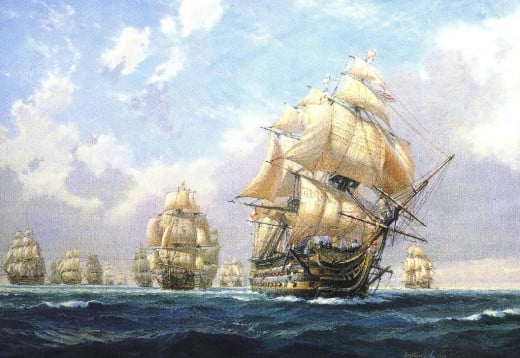
Despite the flaws, the book has quite a number of interesting events and notes recorded. it expresses well the difficulties and confusion of sea travel in the age of sail : it took the British 3 months to make the passage of reinforcements to Malta by sea, due to sailing time and threats of French ships at sea - and this in a period where the British supposedly controlled the sea! Indeed, although the detail rapidly becomes almost numbing, it does truly present all of the difficulties of sailing. and the weather in the period, and does an excellent job of discussing the details of the linkage between maritime and land strategy, made peculiarly difficult by vulnerable bases. For a nation which controlled the seas, it could never count entirely on its fleet, and the reasons behind this and the effect on strategy are well covered. The operations which the British undertook militarily are quite comprehensive, and thus for military historians learning about the period, it has a great degree of utility, reinforced by information annexes concerning British naval and military strength in the region, and estimates of enemy naval strength (this being presumably the French and Spanish). In diplomatic terms, it does not go into the same detail, but it still has interesting remarks upon the Russo-French alliance and the Ottoman Empire in particular, which seem to have affected French strategy to quite a degree : elements like Greece as part of Russian-British-French discord are revealed which receive little note elsewhere. Elements of strategy like bases and naval operations are both described, and illustrated throughout. While the book is limited, for its realm of military developments in the Mediterranean and political maneuverings in the Mediterranean, and what the British view was of the region, it forms a crucial record for what comes afterwards. Unfortunately, this is noted in following histories, which is the flaw of the book : it is old, from 1957, and since then other works, like The Forgotten War against Napoleon: Conflict in the Mediterranean 1793-1815 by Gareth Glover have built upon it. Except for specialists of the Napoleonic wars, there isn't much reason to get a book which might be superb in its own narrow theatre, but which has been since then complemented by broader yet still well informed tomes. Perhaps for historiographical reasons, but that is a rather specialized field itself!
© 2017 Ryan Thomas

